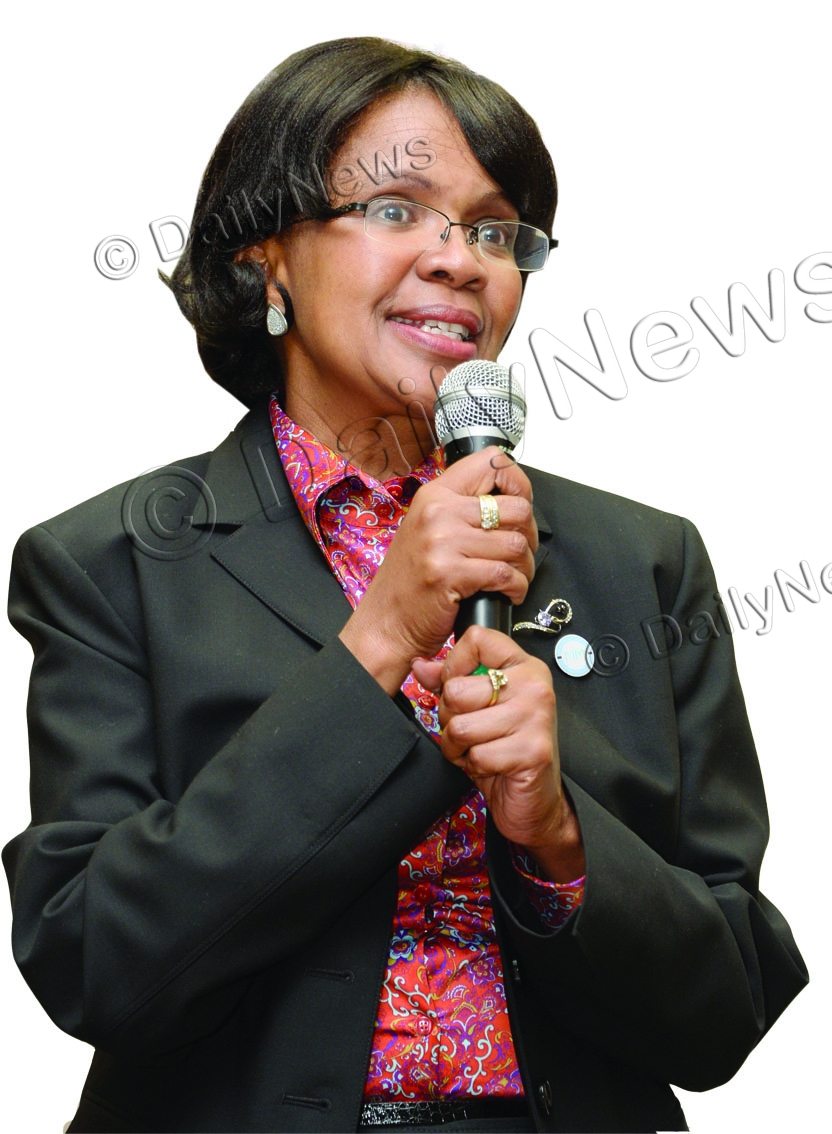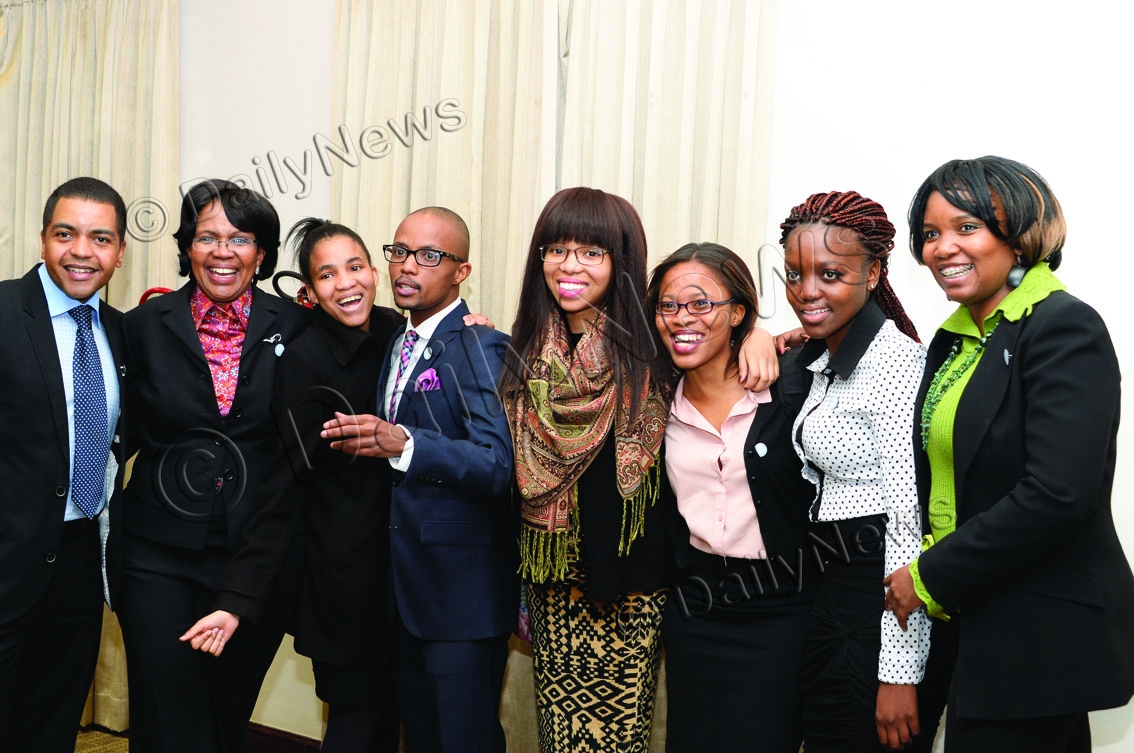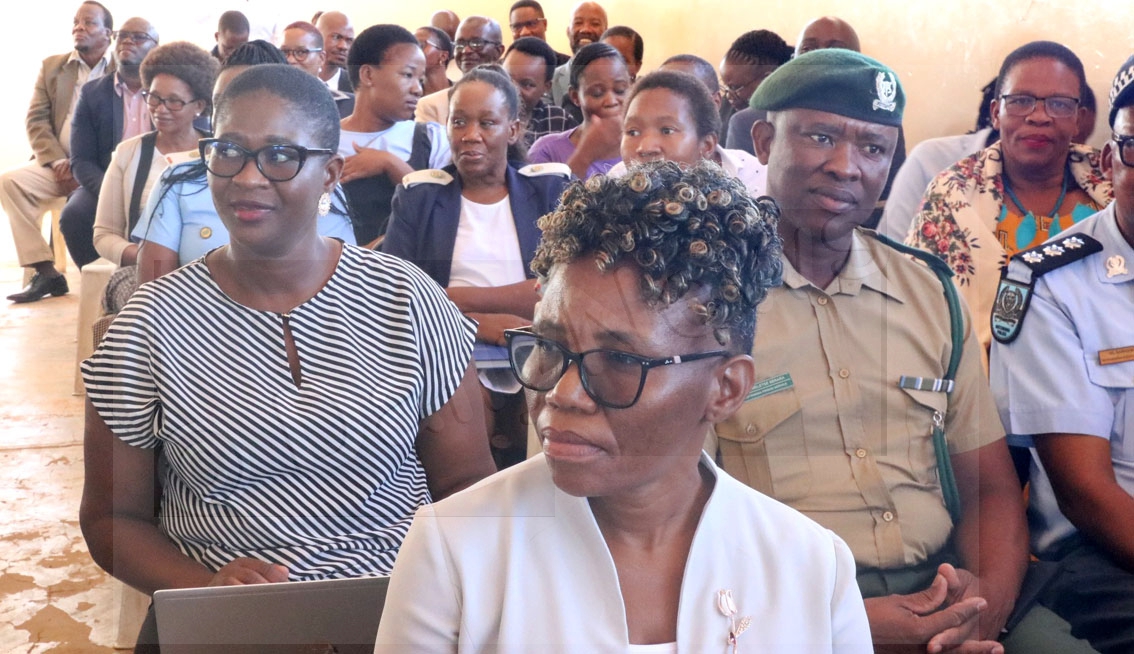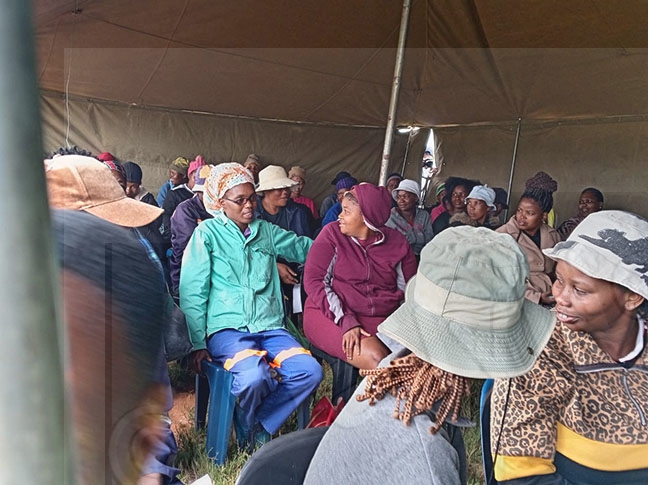Coming of age
07 Sep 2015
Botswana looks forward to clinching the most executive role of the 53 member Commonwealth organisation. With her illustrious public service background, the country’s own daughter of the soil Mmasekgoa Masire-Mwamba has hit the ground running to mobilise support ahead of the November Commonwealth Heads of Government Summit that will elect the chief pilot of the Commonwealth Secretariat. Mmoniemang Motsamai of BOPA had a peep into the character behind the strong willed woman on a quest to global leadership.
Just mention the name Mmasekgoa in any official forum and observe how it resonates with the audience. It appears it is a name synonymous with verve, resilience, results, oomph and all other attributes desirable for a leader. But zooming in on what actually defines these attributes produces a different set of outcomes, it is rather the person behind the name that oozes with these properties, the name only happens to be the seasoning. See how it unfolds:
BOPA: Briefely Tell us about yourself:
Masire-Mwamba: I was actually named Gabaipone Masire, after my father’s mother Gabaipone in what we call go reelela. It is a big name and when you grow up with such a big name sometimes you adopt a substitute somewhere down the line, so unfortunately the substitute name started to overshadow my real name. Mmasekgoa actually started as a nickname and I really do not know what the people that named me Mmasekgoa foresaw in their stars. But as Batswana usually say ina lebe seromo.
BOPA: And your growth path?
Masire-Mwamba: I was born in Kanye but grew in Gaborone where I completed most of my schooling. Thereafter, I went to the United Kingdom for further studies where I obtained a BA in Engineering and BA in Electronics and Physics.
BOPA: Would therefore that define you as an engineer?
Masire-Mwamba: I did a little bit of engineering and a little bit of science, I keep saying one is more the study of matter and the other really problem solving and how you apply that matter, so the two were related, that was my first port of call.
BOPA: How do you define yourself?
Masire-Mwamba: I want people to know me as a simple person who takes their responsibility and obligations seriously. I don’t think I am a serious person from a persona point of view but I believe that I do take my field and areas of interest and concern seriously, and that maybe gives a perception that I am a serious person. I may come across as a serious person because I have a serious approach to my matters of interest and engagement, but I believe I am a very light hearted person and easy to know and relate to and I think that has come across my various engagements in different parts of the world. I have been able to engage with people from across different backgrounds and age groups and different profiles, so I have found it easy to engage and relate.
BOPA: How has the environment you grew around influenced the person you are today?
Masire-Mwamba: I think it indeed played a part in my upbringing and in my disposition. I look at a context that I grew up in a Botswana that was emerging and under developed in so many ways and therefore there was very little to brag about. You know I am from Botswana, was like I am from Botswana, so what? But I think I have had the advantage to be part of the growth of Botswana to see the developments that came in. I studied at Maruapula School back then when there were only 50 students and we were the second group. The first group had 25 and we were the second batch with only 25 students and today we look at Maruapula, everything it does, kind of leaders it has produced and our children assume it has been there all the time. My children also went there, so it has been a phenomenal growth in terms of watching our communities and our development. From a family point of view, I was second in a family of six, second girl followed by three boys and my younger sister, Matshidiso.
So when I grew up there were clear areas of responsibilities, looking after three brothers, there was an expectation, so one immediately grew up with a sense of responsibility and oversight, particularly given the fact that both my parents were so busy. My father in politics and was running around trying to build the nation and my mother was very busy on a home front mainly building the family ensuring that both our own family and greater family were being taken care of. So with busy parents and three, four children beneath you, one was immediately thrust into leadership position in the home front. I think my approach and leadership style has also been formed through that early stage and that early exposure and was lucky in that I always enjoyed the confidence from both my parents. It helped instill in me a sense of confidence and a sense of not being that afraid to venture into the world.
BOPA: Would you identify yourself with the early stages of Botswana independence?
Masire-Mwamba: I was born in 1960. Actually independence was a defining moment because during independence day I was the little girl who went up to give the flowers to Princess Marina, who was representing Her Majesty the Queen. So maybe my link with the Commonwealth was sparked at that time, I had no idea what was happening, but clearly that was the journey that I was starting to embark upon.
BOPA: How were your days at primary school?
Masire-Mwamba: At primary level I went to Thornhill Primary School and again there we were one of the first batches of students in the school. It always sticks in my mind that we did a lot of cake sales and a lot of sponsored walks to contribute towards the building of a swimming pool. The swimming pool was built the year that I left and I always use that as an excuse for why I cannot swim because the time that I could have learnt, I was busy building the pool.
Now when the pool was ready, I missed the opportunity at a young age. But I think for me that really symbolizes what our development journey was like as a country because it was always looking to the future. We would not contribute towards building the pool even though we knew we were not going to be the beneficiaries.
But when our children go through the system, our children now swim like ducks as today as you conduct this interview we will be sending our teams off to the Commonwealth youth games and amongst them I expect we will have swimmers and this is the sport that we may not had at our time but some of us may have had played a part in the development phase of the infrastructure that supports those sporting activities.
BOPA: Your parents were mostly away from home, how do you feel that contributed on who you are now. Did you not feel neglected?
Masire-Mwamba: I grew with a sense of family and partnership as a child despite that the parents were always engaged. We have parents in the form of uncles, aunts, cousins that we grew up around as brothers and sisters. We did not define family in the European sense of mother, father, brother, sister. We defined family in the sense of community. So I think my parents did a great job of exposing and engaging us with the family right from the beginning.
So you did not just go to aunt because your mother was not there, you went there whether your mother was there or not. So they became part of who you were and they became part of the infrastructure and the support that time and we still continue to have.
We grew up as a very tight knit family and sometimes when your parents are in a spotlight position, the family takes a different role because the family becomes the first pot of call, it becomes the confidante circle if you will, people that can support and can guide you much more. So the extended family was our mainstay and continues to be.
BOPA: How did you become independent in that mist?
Masire-Mwamba: My independence was a given. My personality dictates it. I am very strong willed in some of my endevours and the things that I believe in. Through the studying that one had to leave home, one had to have the opportunity to move away from home, so we grew up as we matured. Interestingly, having a more or less disbursed family situation, you already were independent, so this nurtured my independence that you are not just solely dependent on one individual. But you learnt at an early age the different personalities and different ways of approaching things and stamping your own authority on certain issues and situations. Ends
Source : BOPA
Author : Mmoniemang Motsamai
Location : Gaborone
Event : Interview
Date : 07 Sep 2015








